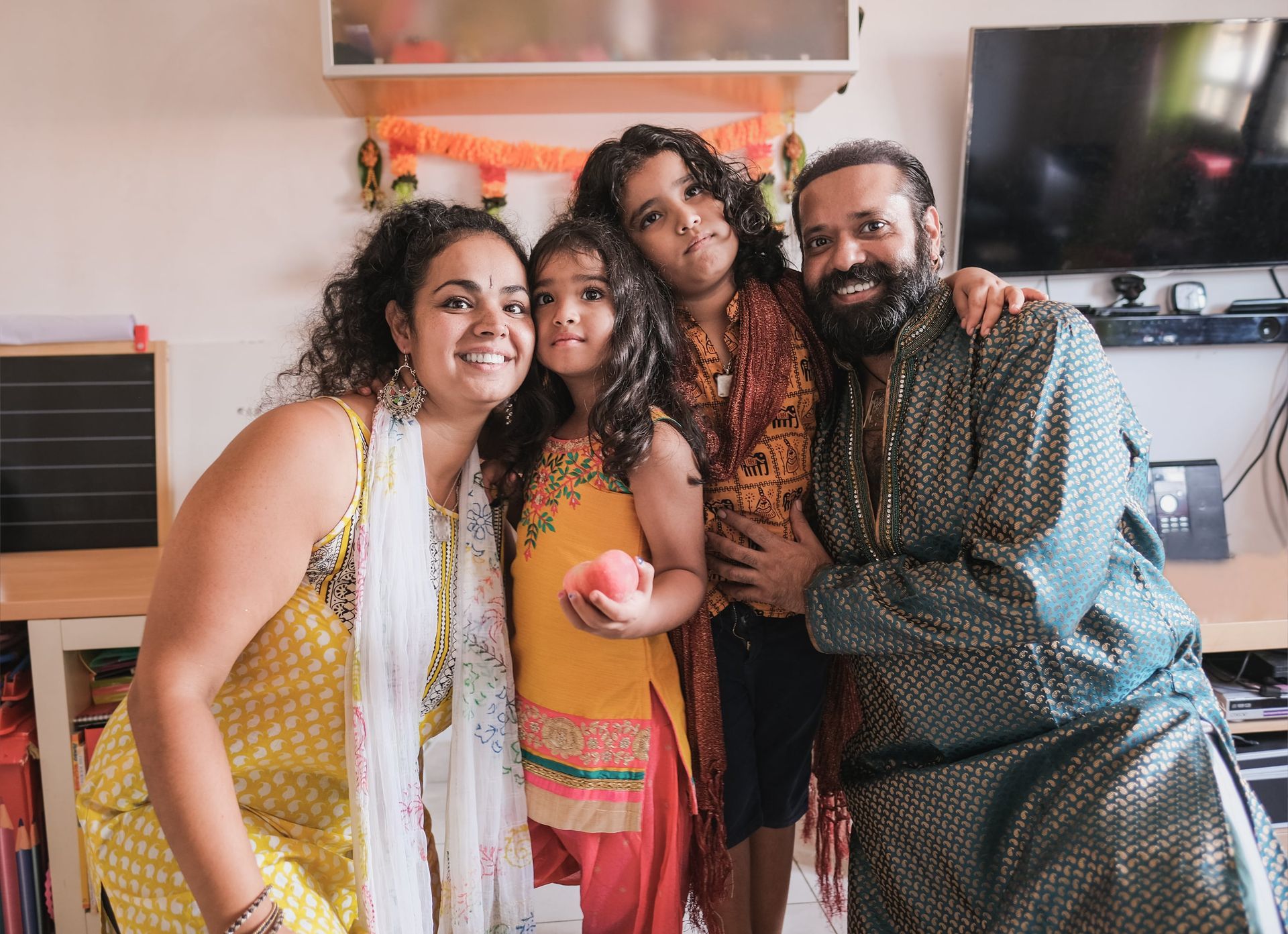What do Boundaries Look Like in a South Asian Family?
Why Boundaries Are Hard to Set in Our Culture

Boundaries are the buzzword of the year. You hear it on the news, in TV shows, podcasts…you name it. And with good reason!
Let’s look at a conversation:
Child: "Mom, I’d like some privacy…at least sometimes! I just want my own space, like other kids!”
Mom: "Privacy? In my house? Where I pay the bills, cook, and clean? What are you trying to hide from me? I am your mother, I have the right to know everything about you!"
Child: “Mom, all I am asking for is some space to be by myself. It’s not that hard!”
Mom: “As long as you live under my roof, you will do as I say!”
This conversation might hit close to home, reminding us of our own life or someone we know. Each scenario paints a similar picture – one where an individual’s needs and desires are not being respected. Worse, they are being shamed and guilt-tripped into feeling bad for stating their needs. This is where boundary-setting comes into play.
The question is…what is a boundary and is this a concept that can be applied to our desi community, BIPOC folk, or immigrants? Let’s unpack that.
First, what is a boundary?
A boundary, simply put is a set of rules, limits, or lines we set for ourselves to protect us and provide us comfort. This is important when are around people or in relationships and can help set limits so people do not take advantage of us or manipulate us.
Boundaries are
not demands nor focused on the other person’s behaviours or actions. Rather, they are limits we set for ourselves, letting others know what actions we might take to PROTECT ourselves – physically, emotionally, financially, sexually, mentally, or even our time.
Given the importance of the family unit, we may often overlook our individual needs, giving in to others and not saying no when all we really just want to tell them “No!”. Asserting our needs and boundaries can feel scary, especially with our parents or elders.
We may feel overwhelming anxiety or crushing guilt expressing our needs, given the strong emphasis on loyalty, self-sacrifice, and obedience.
We may encounter the usual suspects:
- Guilt-tripping “I sacrificed my whole life…only for you to…”
- Emotional manipulation “You’ll understand when I die”
- Comparisons “So and so’s child never would have done this”
- Conditional love and respect or fearful consequences “If you don’t do this, know that we cannot be family” “You do X, you are dead to us”
- The silent treatment…
The guilt culture is strong! So, how can we set boundaries?
While scary and uncomfortable, setting boundaries helps us respectfully communicate our needs. You can start small, gradually opening up the dialogue, and engage in a non-confrontational conversation. Choose a calm moment, and use “I” statements to help avoid sounding accusatory and blameful.
It helps if you have worked on identifying your values and needs. That clarity will help you communicate your needs assertively. Paint a picture for your family, to help them understand what it is you are asking. Seek a compromise and be patient.
Let’s revisit our scenario and see how we can incorporate these tips:
Child: “Can we talk about something important, please?”
Mom: “Of course”
Child: “Mom, I love that you care so deeply for me. I wanted to discuss my privacy and need for my own space.”
Mom: “What do you mean? What private space? I am your mother and should know what you are up to!”
Child: “I understand your point, Mom. But as I grow, I wish to become independent and learn how to navigate life. Would you be open to discussing a compromise, please?”
Mom: “Compromise? I don’t know. What if you are hurt?”
Child: “What if I ask that I keep my door closed but unlocked, and you knock before entering?”
Mom: “You’ll keep it unlocked?... I suppose we can try it. It’ll be tough for me but ok….”
Child: “Thank you, mom. I appreciate you trying for me!”
While this conversation was tough for both parties, by working together, being patient and understanding, they were able to come to a compromise. With time, the child can hold and relay their needs as trust and respect grow between them and their mother.
Too often, boundaries are put forward as barriers or ultimatums. That is not the goal of a boundary. Boundary setting helps protect you and your relationships. They foster trust, respect, and mutual understanding, leading to stronger bonds and long-lasting relationships. By vocalizing your needs, you protect yourself from burnout, and resentment, and enjoy a better quality of life.
Your journey toward a healthier life is not far. If you’d like to learn more about your values or how you can set better boundaries, book a
free consultation
today.
Recent Posts
Are you Looking For a Therapist Who Works With The South Asian Population in Brampton?
Finding a therapist who understands the unique pressures, fears, and challenges faced within the South Asian community can make all the difference in your healing journey. I know that cultural expectations, family dynamics, and personal struggles often feel overwhelming and can sometimes make it hard to reach out for support.
In my practice, I bring a deep understanding of these experiences, offering a space where you can feel truly seen, heard, and supported without judgment. Together, we’ll work toward breaking cycles, setting boundaries, and finding ways to honor your own needs while respecting your roots.
If you're ready to explore how therapy can support you, I invite you to book a free 15-minute consultation. Let’s talk about how we can work together to help you find relief, strength, and clarity.
Take the First Step Toward Reclaiming Your life
Don’t let another day pass feeling overwhelmed. Start your journey to healing and empowerment now. Schedule your free consultation!
Site Navigation
HOURS OF OPERATION:
- Mon - Fri
- -
- Saturday
- -
- Sunday
- Closed
All Rights Reserved | Empowering Roots Psychotherapy & Wellness | Privacy Policy | Website Designed by Thriving Mind Marketing





